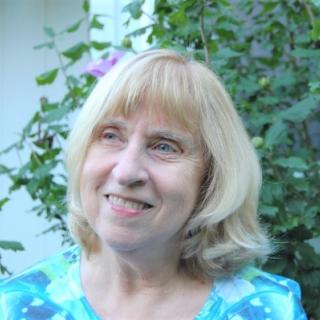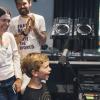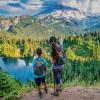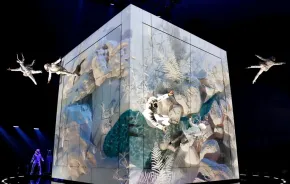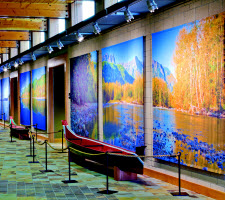 The aroma of freshly cut cedar permeates the air as you walk through the Hibulb Cultural Center in Tulalip. To the Tulalip People, cedar was considered “the tree of life” and was used everywhere in their daily lives including in canoes, berry baskets and longhouses.
The aroma of freshly cut cedar permeates the air as you walk through the Hibulb Cultural Center in Tulalip. To the Tulalip People, cedar was considered “the tree of life” and was used everywhere in their daily lives including in canoes, berry baskets and longhouses.
Opened last summer, the Hibulb Cultural Center & Natural History Preserve (a 50-acre outdoor area) is located in a newly constructed building and gives children a chance to interact with the exhibits. No “do not touch” signs here. It's just north of Everett, about a 45-minute drive from Seattle.
The purpose of the center is to share the journey of the Tulalip People and keep the cultural fires burning, says Director Henry Gobin.
Named for a village at Preston Point, which is now Legion Park in Everett, Hibulb means “place of a thousand fires.”
The boarding school exhibit is of particular interest to children -- portraying what it was like to be a Tulalip child from the late 1800s to the 1930s. They were sent to boarding schools so they could “adapt” to the American society. Not only were they deprived of their parents and family life, but these children had to march everywhere, were frequently and severely punished, often didn’t have enough food to eat and were not allowed to speak their native language.
One of these forbidden languages, Lushootseed, had almost been forgotten until a few years ago. Now Tribes like the Tulalip are working hard to make sure the language survives and the Center is part of this movement.
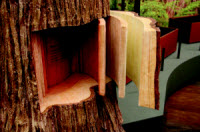 “At the Center we offer an interactive learning experience through hands-on exhibit activities, short films and multiple stories – both in Lushootseed and English,” says Gobin.
“At the Center we offer an interactive learning experience through hands-on exhibit activities, short films and multiple stories – both in Lushootseed and English,” says Gobin.
One exhibit helps kids understand what the language sounds like. Pick up the phone receiver and you can choose to hear phrases like “salmon ceremony” in both Lushootseed and English.
Don’t miss the canoes, the replica of a longhouse and the gift shop.
Remembering the visit
You can create a memory by taking a photo (no flash, please) of your child in front of the larger-than-life figures inside the entryway. Both are welcome figures; one an elder woman and the other a Coast Salish man. Coast Salish Tribes is an overall designation of Native Americans in Washington, Oregon and Canada.
Gobin invites all guests to take part in the Coast Salish culture through demonstrations, classes, lectures, stories and crafts at the Center.
Children can learn crafts related to the Tulalip Tribe culture from 2-3 p.m. every Sunday (free with admission).
Heather Larson, a writer in Tacoma, enjoys visiting kid-friendly places in Washington with her grandchildren and then writing about the experience.
If You Go . . .
Where: Hibulb Cultural Center is located at 6410 23rd Ave. N.E. in Tulalip, WA
Hours: Tuesday–Friday: 10 a.m.-5 p.m.; Saturday & Sunday: noon-5 p.m.
Admission: Adults $10, students (6-17) $6; Children (5 and under) free; family ( 2 adults and up to 4 children) $25
Upcoming craft workshops: Dream Catchers from 1 p.m.-3 p.m. on March 31 ($10-$20 for supplies in addition to admission) and Miniature Cedar Baskets from 1 p.m.-3 p.m. on April 3 ($10 in addition to admission).
Find out more: hibulbculturalcenter.org
Photos Courtesy of Hibulb Cultural Center




